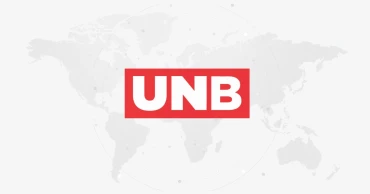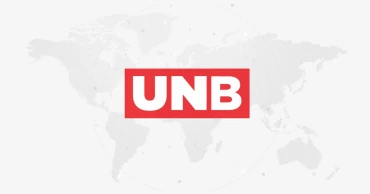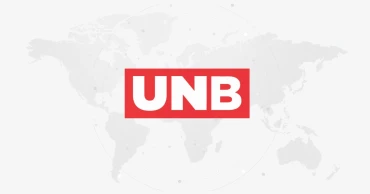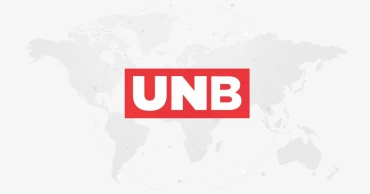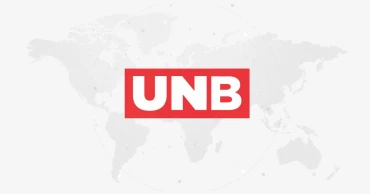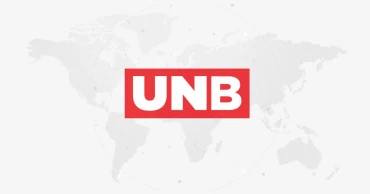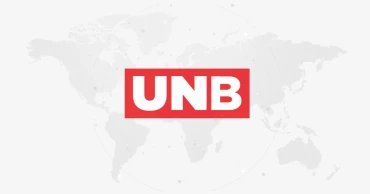Belgium
Bangladesh seeks Belgium’s backing for GSP+, post-LDC graduation
Bangladesh has sought Belgium’s support through the European Union (EU) to its bid for the GSP+ beyond 2029 and for an additional six years international support measures (ISP) for countries in transition in the context of Bangladesh’s LDC graduation in 2026.
The Belgian side assured due consideration in this regard.
Bangladesh and Belgium held the second political consultations on Sunday and discussed the issues.
Additional Foreign Secretary (Bilateral-East and West) of the Ministry of Foreign Affairs Dr Md Nazrul Islam led the Bangladesh delegation at the consultations, while Director General (Bilateral Affairs) of the Ministry of Foreign Affairs, Foreign Trade, and Development Cooperation of Belgium Jeroen Cooreman led the Belgian delegation.
Non-resident Ambassador of Belgium to Bangladesh Didier Vanderhasselt and representatives from different Ministries of the Government of Bangladesh also joined the consultations.
The discussion kicked off with a brief discussion on the student-led mass uprising in July and August this year and priorities of the Interim government including restoring law and order, bringing the economy back on track, and systemic reform of the state institutions, among others.
Ambassador Islam thanked Belgium for reiterating their support in expressing readiness to engage with the interim government.
The Bangladesh co-chair also recalled Queen Mathilde’s visit to Bangladesh during February 2023 when she visited Rohingya camps and appreciated Belgium’s continued support towards a resolution of Rohingya crisis.
Bangladesh welcomes investors from China in post-US election landscape
In this regard, the co-chair apprised of the Hon’ble Chief Adviser’s letter to the UNSG, requesting an all-stakeholder meeting in early 2025.
Belgium shared that there is growing diverse interests from Belgian businesses about Bangladesh, not only as an export destination but also as a manufacturing sourcing point to invest in Bangladesh by Belgian entrepreneurs Both parties also expressed hope of cooperation in cancer research under the auspices of an MOU between NICRH-BD and Bordet Cancer Institute-BE.
Both the parties agreed to work together in dealing with improving human rights condition, the existential thereat of climate change in a sustainable manner while implementing loss and damage funding responsibilities.
The discussions also covered issues related to the Indo-Pacific, the war in Ukraine and the atrocities committed during the Israel-Palestine conflict.
Both sides agreed that the Bangladesh-Belgium 3rd Political Consultations would take place in Brussels at a mutually convenient date in 2025.
1 year ago
Boat-shaped wooden houses made in Bagerhat to be exported to Belgium
In a boost to local exports, wooden houses crafted in a remote village of Bagerhat will be shipped to Belgium, creating new avenues for foreign currency earnings and generating employment opportunities in the region.
Constructed entirely from wood, including their framework, walls, doors, windows, and roofs, these boat-shaped houses are opening up new international markets. Mostafiz Ahmed, an entrepreneur behind Natural Fiber that is spearheading this initiative from Bagerhat’s BSCIC industrial city, believes that with government support, this venture could expand significantly.
Earlier this year, a Belgian eco park placed an order for 120 eco-friendly wooden houses, made from sustainable materials.
Mostafiz Ahmed shared with UNB’s Bagerhat correspondent that the order from the Belgian eco park is to be fulfilled within two years. The agreement stipulates that the houses must be made from local mahogany wood, with all materials being biodegradable. The wood is sourced from nearby areas, ensuring sustainability.
A visit to Natural Fiber’s factory in the remote Karori village in Bagerhat revealed a bustling scene where workers were diligently constructing the wooden houses. Some workers focused on building doors and windows, others on assembling frames, and another group on crafting walls. The final step involves meticulous painting and polishing, resulting in aesthetically pleasing and environmentally friendly houses.
The houses, initially constructed as single units measuring 11 meters in length and 4.25 meters in width, are then divided into smaller sections for easier transportation. These sections can be easily assembled at any location.
Carpenter Mojahid explained that they received training before beginning the construction. After completing the design, the houses undergo approval by both the company and foreign representatives. The workers are now operating at full capacity, with each house taking about a week to complete, weather permitting. The project employs around 200 workers.
1 year ago
‘PCA can be something broad to discuss Bangladesh-EU relations’
The new Partnership and Cooperation Agreement (PCA) with the European Union (EU) can be “something very broad” to discuss future Bangladesh-EU relations, said a senior official at the EU headquarters ahead of the 3rd EU Indo-Pacific Ministerial Forum.
Talking to UNB virtually, he mentioned joint launching of negotiations on a new Partnership and Cooperation Agreement (PCA) by Prime Minister Sheikh Hasina and European Commission President Ursula von der Leyen on October 25 last year in Brussels to expand and develop the multi-dimensional relationship between Bangladesh and the EU.
PCA is a legally binding agreement and it is one of three special types of international agreements.
By means of a PCA, the EU works to support the democratic and economic development of a country.
EU eyes a "step change" in relations with Bangladesh in next 5 years: Charles Whiteley
A PCA is typically entered into for ten years, after which they are automatically extended each year provided no objections are raised.
The third EU Indo-Pacific Ministerial Forum will be held in Brussels on February 2 and it will be chaired by the High Representative of the EU for Foreign Affairs and Security Policy and Vice President of the European Commission, Josep Borrell.
Foreign Minister Dr Hasan Mahmud is scheduled to attend the forum who is also likely to have a number of meetings on the sidelines of the forum.
It will include an opening plenary session, three roundtable discussions and a closing session.
The Brussels Indo-Pacific Ministerial Forum builds on the success of the previous two EU Indo-Pacific Ministerial Forums held in Paris in February 2022 and in Stockholm in May 2023.
It will provide a platform for dialogue, for shaping a collective vision for the region’s future and for identifying practical ways to enhance cooperation and deepen solidarity.
Europe and the Indo-Pacific are highly interconnected and interdependent, that is why the EU Indo-Pacific Ministerial Forum serves as a crucial platform for fostering dialogue and cooperation between Europe and the Indo-Pacific.
Asked whether the EU’s strategy for cooperation with the Indo-Pacific countries will concentrate on the security or economic dimensions, the EU senior official referred to the seven pillars of EU’s Indo-Pacific strategy.
The seven priority areas for the EU action are sustainable and inclusive prosperity; green transition; ocean governance; digital governance and partnerships; connectivity; security and defence; and human security.
He said Bangladesh is a massive country in terms of population and it has a very impressive economic growth.
Commending the EU as Bangladesh’s largest export market, Foreign Minister Hasan Mahmud recently requested for EU’s Everything But Arms (EBA) trade concessions until 2032 to support Bangladesh’s smooth graduation from the LDC status as well as EU’s import of diversified products from Bangladesh including jute and jute goods along with traditional products like apparels and shrimps.
The Indo-Pacific region is of key strategic importance, both in economic and geopolitical terms. The 2021 EU Strategy for Cooperation in the Indo-Pacific sets out how the EU is stepping up collaboration with Indo-Pacific partners to contribute to the region’s stability, security and prosperity.
The EU Indo-Pacific Ministerial Forum will bring together the EU and its Member States with countries from the East coast of Africa in the West to the Pacific islands in the East.
The EU and Indo-Pacific partners will discuss how to address the increasing number of complex economic, environmental, geopolitical, and security challenges that affect both regions. Climate change and environmental degradation are existential threats for all.
It is clear that close cooperation is key to addressing these challenges effectively, achieving sustainable economic growth, and strengthening resilience to shocks and disruptions.
The digital economy, in particular, holds the potential for significant innovation and growth.
EU-ASEAN Ministerial Meeting
The 24th EU-ASEAN Ministerial meeting also takes place in Brussels on February 2.
The meeting will be co-chaired by EU High Representative Josep Borrell and the Philippines’ Secretary of Foreign Affairs Enrique Manalo.
It will review the implementation of decisions adopted at the EU-ASEAN Commemorative Summit held one year ago in December 2022 and agree on future steps in developing the EU-ASEAN Strategic Partnership.
During last year's EU-ASEAN Commemorative Summit, the EU pledged to mobilize EUR 10 billion for connectivity projects in ASEAN under the Global Gateway initiative.
To emphasise the centrality of ASEAN in the EU Indo-Pacific Strategy, ASEAN Foreign Ministers have also been invited to participate in the EU’s 3rd Indo-Pacific Ministerial Forum, to be held on the same day.
EU allocates €300,000 in humanitarian aid to gutted Cox’s Bazar Rohingya camps
2 years ago
President Hamid calls on Belgium to help repatriation of Rohingyas
President Abdul Hamid on Wednesday sought the cooperation of Belgium for a safe, peaceful and dignified repatriation of the displaced Rohingya people to their homeland in Myanmar.
The president sought the support during the meeting with the visiting Belgium Queen Mathilde at Bangabhaban in the evening.
President's press secretary Md Joynal Abedin briefed reporters after the meeting. Welcoming the queen, he said Bangladesh deeply values its relations with Belgium,
Recalling with gratitude that Belgium was one of the first European countries to recognize Bangladesh in February 1972, he said since then, Belgium has been a steady supporter and partner in "our socio-economic developmental journey."
Belgium has been providing continuous assistance to Bangladesh and this assistance is increasing day by day, the Hamid said.
He referred the completion of 50 years of establishment of diplomatic relations between Bangladesh and Belgium in 2022 as a landmark occasion.
"It gave us the opportunity to explore avenues to further widen and deepen our cooperation for the benefit of our two peoples," he said.
Raising the Rohingya issue he told the queen that for the last five years, Bangladesh has been sheltering more than 1.1 million forcibly displaced Myanmar nationals (Rohingyas) who fled Myanmar due to persecution by the Myanmar military and security forces.
Read more: Belgian Queen Mathilde to visit Rohingyas camps in Cox’s Bazar Tuesday
"Not a single Rohingyas could go back to their country yet as the Myanmar government has done nothing to create the appropriate conditions for their return," the president said, calling the Rohingyas a big burden for Bangladesh.
He called upon Belgium and international development agencies to take appropriate steps so that the Rohingyas can return to their country in a dignified manner.
During the meeting, Queen Mathilde praised the socio-economic development of Bangladesh. She said Bangladesh has undoubtedly shown humanity by sheltering the forcibly displaced Rohingyas.
Information and Broadcasting Minisater Hasan Mahmud, Belgian ambassador to Bangladesh Didier Vanderhasselt, secretaries concerned to the Bangabhaban and the ministry of foreign affairs were present.
3 years ago
Why are World Cup players donning unusual face masks on pitch?
From South Korea's Son Heung-min, Croatia's Joško Gvardiol, Tunisia's Ellyes Skhiri, Belgium's Thomas Meunier to Iran's Alireza Beiranvand, several players have been spotted wearing unusual face masks on the pitch during the FIFA World Cup 2022 matches in Qatar, drawing comparisons to Batman and the Phantom of the Opera.
The masks, made from materials like polycarbonate, are leaving social media users curious as to why the footballers are sporting the black shields.
But it's not a fashion statement. When football players suffer facial injuries, they frequently don protective masks. Some of these masks are 3D printed, enabling them to be customised to each player's facial features.
Read more: France's Benzema ruled out of FIFA World Cup Qatar 2022
Players such as Pierre-Emerick Aubameyang, Fernando Torres, and Antonio Rudiger wore face masks before.
RB Leipzig centre-back Gvardiol sported a black protective mask during the Group F match against Morocco and Canada.
The reason for the 20-year-old sporting the face covering is he had a collision with teammate Willi Orban in a Bundesliga match on November 10, with scans later showing he had broken his nose and suffered minor injuries to his face and eyes.
Also read: Neymar to miss Brazil’s second World Cup match due to injury
In a similar on-field collision, Son suffered a fracture in his face, specifically around the eye socket, while playing for Tottenham during a November 1 Champions League win against Marseille.
The 30-year-old winger also stepped onto the field against Uruguay and Ghana, donning a black carbon fibre mask.
FC Köln midfielder Ellyes donned a mask against Denmark and Australia in Group D. The 27-year-old is nursing a broken cheekbone after suffering an injury in October.
Read More: Qatari bathrobes’: German commentator under fire for disparaging remark about traditional attire
Belgium's Borussia Dortmund star Thomas Meunier was also seen wearing a mask against the Red Devils' match against Canada.
In Dortmund's match against Hannover 96 earlier this season, the defender fractured his cheekbone and had to undergo surgery.
3 years ago
Riots in Belgium, Netherlands after Morocco win at World Cup
Riots broke out in several Belgian and Dutch cities after Morocco’s 2-0 upset win over Belgium at the World Cup Sunday.
Police detained about a dozen people after they deployed water cannons and fire tear gas to disperse crowds in Brussels and eight more in the Northern city of Antwerp. Two police officials were injured in the Dutch port city of Rotterdam. By late evening Sunday, an uneasy calm had returned to most of the cities involved.
Dozens of rioters overturned and torched cars, set electric scooters on fire and pelted cars with bricks. Police moved in after one person suffered facial injuries, said Brussels police spokeswoman Ilse Van de Keere.
Read more: What happened to Morocco's first-choice GK before kickoff v Belgium?
Brussels mayor Philippe Close urged people to stay away from the city center and said authorities were doing their utmost to keep order in the streets. Even subway and tram traffic had to be interrupted on police orders.
“Those are not fans, they are rioters. Moroccan fans are there to celebrate,” Close said. There were also disturbances in the city of Antwerp and Liege.
“Sad to see how a few individuals abuse a situation to run amok,” said Interior Minister Annelies Verlinden.
Police in the neighboring Netherlands said violence erupted in the port city of Rotterdam, with riot officers attempting to break up a group of 500 soccer supporters who pelted police with fireworks and glass. Media reported unrest in the capital Amsterdam and The Hague.
Read more: Morocco beat Belgium 2-0 pulling off another shock at World Cup
Morocco’s victory was a major upset at the World Cup and was enthusiastically celebrated by fans with Moroccan immigrant roots in many Belgian and Dutch cities.
3 years ago
FIFA denies Belgium’s request to wear jerseys with “Love” label at Qatar World Cup
FIFA has denied Belgium’s request to wear team jerseys with a “Love” label at the World Cup in Qatar because of a commercial link to a rave festival.
Multi-color detail on the white shirt was described as a “symbol for mutual values on diversity, equality and inclusivity” at the September launch by Belgium’s signature electronic music event Tomorrowland.
But FIFA rules on team uniforms and equipment forced Belgium to change its World Cup plans for its first alternate jersey to the traditional red.
“We had to skip it for commercial reasons because of referring to Tomorrowland,” the Belgian soccer federation said Monday.
FIFA declined to comment on its ruling regarding the second-choice jersey, which was made several weeks ago.
Read more: What is ‘One Love’ armband and why is FIFA against it in World Cup 2022?
The decision emerged Monday after FIFA flexed its power to crack down on Belgium and six other European teams for wanting their captains to wear the “One Love” armband with a multi-colored, heart-shaped logo in Qatar. The teams backed down when FIFA threatened instant yellow cards for each captain.
The armband, which breaks FIFA equipment rules, was to support a Dutch anti-discrimination campaign that drew attention to the host nation’s record on human rights.
The “One Love” campaign highlighted little-known FIFA rules that Belgium also fell foul of.
All 32 World Cup teams had to seek FIFA approval for designs and colors of three contrasting team uniforms months ahead of the tournament. FIFA has now approved the white Belgium jersey with the same colored trim but the “Love” label covered up on the inside of the collar.
“In principle we could play in it (at the World Cup),” the Belgian soccer federation said, “but meanwhile we chose to play in red for the group-stage matches.”
Belgium starts its Group F program against Canada on Wednesday. The 2018 World Cup semifinalists then play Morocco and Croatia, the losing finalist from four years ago.
Read more: FIFA’s punishment threat forces European team captains to abandon ‘One Love’ armbands
A similar case enforced by European soccer body UEFA last year saw Ajax denied permission to include a "Three Little Birds" motif on a shirt inspired by reggae music icon Bob Marley for Champions League games.
Ajax could wear the black shirt with gold, red and green trim to honor its fans' anthem but UEFA ruled the motif had to be removed from the back of the shirt.
3 years ago
Study in Belgium: Bachelor's, Masters and PhD options for Bangladeshi students
European countries are steadily becoming a hub for higher education over the last decade. World-class education, affordable tuition, prospective career, and several other reasons can be named for the influx of international students in Europe. Among them, Belgium happens to be one of the top choices. Let’s take a look at the higher education opportunities in Belgium for international students and explore how Bangladeshi students can be a part of it.
Why Study in Belgium?
Starting with the beautiful scenic countryside, luscious gorges, and canals, Belgium is a country to behold for its natural beauty. The scenic nature of Belgium, a central European country, combined with the cosmopolitan cities has been a great destination for many international students to pursue bachelor, master's, or Ph.D.
In addition to that, Belgium offers some of the best living standards in Europe. The cities are robust with cultural affluence. The mix of the Flanders and the Wallonia culture has made the country even more diverse within itself.
Read Study in Denmark: Costs, opportunities for international students
On the educational end, the top 10 universities in Belgium rank in the top 800 universities globally according to the QS ranking of 2022. The programs offered by the top Belgium universities are also diverse. Study programs range from pure science, engineering, life sciences, and social science to medicine.
Higher Study Opportunity in Belgium for International Students
Belgium offers all three of the higher education options – bachelor, master, and Ph.D. Bachelors generally run for 3 to 4 years, masters for 1 or 2 years, and Ph.D. for 3 to 4 years maximum.
However, there’s a caveat with the bachelor’s opportunities. Most of the courses and programs on the undergraduate level are offered in Dutch. Compared to that, very few English-taught programs are available at the undergraduate level. This means you’ll either have to learn the language or search very hard for your desired program.
Read Cheapest countries for Bangladeshi students for higher studies
In contrast, most of the master's and Ph.D. programs are offered in English. So, a standardized English proficiency is enough to get going in these programs.
Can International Students Study Bachelor in Belgium?
Bachelors in Belgium aren’t all that common for international students mainly because of the language requirement. But there are still ample opportunities and many students avail themselves with some extra effort to learn the language first.
The process of application for bachelor's, master, and Ph.D. are more or less the same. However, there are certain distinctions as you will see in each part.
Read SoP for Higher Studies: How to write an unfailing Statement of Purpose?
The admission window for foreign students in Belgium is only open for fall. Belgium does not offer admission to international students in Spring.
The general requirements for documents include –
- Educational certificate and Transcripts
- Two LORs
- Statement of Purpose/ Motivation Letter
- IELTS/TOEFL
- Extra-Curricular Activities (If Applicable)
- Awards and Achievements Certificates (If Applicable).
Read Student Loans in Bangladesh: Banks Offering Education Loans for Higher Studies
Students will require a legalized copy of each of the documents that they submit online or send through traditional mail to the university. To legalize the documents, a student will need to get their documents attested by their respective educational institution, Education Board, Ministry of Foreign Affairs, and the Belgian Consulate in their respective country.
The process may be cumbersome but Belgian institutes do not accept any application that hasn’t been legalized in the above manner.
The application process usually starts a year before the prospective entry date. Depending on the university, a student will have to pay 30 to 100 euros or 3,045 BDT or 10,115 BDT as an application fee (1 EUR = 101 BDT).
Read Higher Study in China: Scholarship Opportunities for Bangladeshi Students
Tuition also isn’t free in Belgium. Undergraduate courses can run anywhere between 950 euros to 6000 euros or 96,436 BDT to 6,09,072 BDT per year depending on the program.
Scope for International Students to Study Masters in Belgium
Master in Belgium is the more popular choice for international students as it doesn’t require Dutch and neither does it require specialization in academia for Ph.D.
Generally, a master's program runs for about 2 years with some specified courses having a 1-year degree offering. Prospective student needs to complete at least 16 years of formal education in their respective country to be eligible for a master's in Belgium.
Read Higher Study in Germany: Scholarship Opportunities for Bangladeshi and Other International Students
A student can bypass the IELTS/TOEFL requirement if their Medium of Instruction or MOI at the undergraduate level was English. The English-taught programs are required to be certified by the respective universities. In addition to the document requirements mentioned in the bachelor's section, a student might have to submit a research plan for their intended program.
The average tuition fees for master's degrees are the same as bachelor's and are calculated on an annual basis.
Ph.D. in Belgium
We have already talked about how Belgium is basically divided between Flanders and Wallonia. Universities in Belgium are also classified between Flemmish and Walloon universities. Each of the two has a different fee structure for their Ph.D. program.
Read Study in Norway: Scholarship Opportunities for International Students including Bangladesh
Flemmish universities charges around 474 euro or 48,116 BDT each for the first and last year of a Ph.D., nothing in between.
On the other hand, Walloon universities has an initial first-year tuition fee of around 835 euros or 84,762 BDT with a subsequent fee of around 50 euros or 5075 BDT per consecutive year.
To get admission into Belgian Ph.D. programs, prospective candidates need to have a good research track record and experience in academia.
Read Study in Australia: Scholarship Opportunities for Bangladeshi Students
Scholarship Opportunities in Belgium
Belgian universities have generous scholarship opportunities depending on the universities. Most of these scholarships are available after enrollment. In addition to university-specific scholarships, there are other centralized scholarship opportunities as well. These include –
1. Belgian Technical Cooperation Scholarships
2. The Science@Leuven Scholarships
3. The Erasmus Mundus Joint Masters
4. Innoviris Scholarship
5. Master Mind Scholarship
6. The VLIR-UOS Training and Master Scholarship
7. University of Ghent Doctoral Fund
8. Agence Universitaire de la Francophonie (AUF) Scholarship
9. FRS-FNRS Scholarship
Cost of Living in Belgium
As Belgium is divided distinctly into two regions, the cost of living somewhat differs depending on where your university is located or where the student is living. Generally, the cost of living is around 750 euros to 950 euros or 76,134 BDT to 96,436 BDT in places away from the capital.
Read Study in France: Scholarship Opportunities and Overview for Bangladeshi Students
Living costs can go up as high as 1200 euros or 1,21,814 BDT if you live in and around Brussels. But that’s the highest cap in terms of living cost in Belgium and most students can easily get by under 1000 euros.
Job Opportunities in Belgium
There are ample job opportunities for foreign graduates in Belgium. The country recently allowed all foreign students to have orientation time of up to one year for job search after graduation.
This will allow the foreign student unlimited access to the Belgian job market and secure a desired career track after graduation. After securing a job, students will need to get the Combined Residence Permit to stay and work in Belgium.
Read Study in the Netherlands: Scholarship Opportunities for Bangladeshi Students
Final Words
So far, we have discussed how students from Bangladesh can do bachelor's, master's, or PhDs in Belgium. Higher study in Belgium is now more accessible and affordable than ever. As the country has a growing old-age population, it is reforming policies to attract non-EU talents to the country and potentially secure jobs in the Belgian market. This is a golden opportunity for prospective students to utilize Belgium as a potential study destination and career hub in the long run.
3 years ago
Car runs into Carnival revelers in Belgium, killing 6
A car slammed at high speed into Carnival revelers in a small town in southern Belgium early Sunday, killing six people and leaving 10 more with life-threatening injuries, authorities said, adding many others were lightly injured.
“What should have been a great party turned into a tragedy,” said Belgian Interior Minister Annelies Verlinden.
Read:Ukraine war is backdrop in US push for hypersonic weapons
The prosecutor's office, which gave the death toll, also said two local people in their thirties were arrested at the scene in Strépy-Bracquegnies, 50 kilometers (30 miles) south of Brussels. Prosecutors said, in the early stages of their investigation, there were no elements to suspect a terror motive.
In an age-old tradition, Carnival revelers had gathered at dawn, intending to pick up others at their homes along the way, to finally hold their famous festivity again after it was banned for the past two years to counter the spread of COVID-19. Some dressed in colorful garb with bells attached, walking behind the beat of drums. It was supposed to be a day of deliverance.
Instead, said mayor Jacques Gobert, “what happened turned it into a national catastrophe.”
More than 150 people of all ages had gathered around 5 a.m. and were standing in a thick crowd along a long, straight road. Suddenly, “a car drove from the back at high speed. And we have a few dozen injured and unfortunately several people who are killed,” Gobert said.
The driver and a second person were arrested when their car came to a halt a few hundred meters (yards) further on.
Since Belgium was hit with twin terror attacks in Brussels and Zaventem that killed 32 civilians six years ago, thoughts of a terror motive are never far away.
But prosecutor Damien Verheyen said “there is no element in the investigation at this time that allows me to consider that the motivations of the two could have been terror related.”
The prosecutor's office also denied media reports that the crash may have been caused by a car that was being chased by police.
Read:Top Australian scientists to tackle plastic waste
King Philippe and Prime Minister Alexander De Croo were expected to visit Strépy-Bracquegnies later Sunday to express support for the families of the dead and those injured.
Carnival is extremely popular in the area. Carnival festivities in nearby Binche have even been declared a UNESCO Intangible Cultural Heritage.
3 years ago
Tens of thousands protest Belgium’s tighter COVID-19 rules
Tens of thousands of people demonstrated through central Brussels on Sunday to protest reinforced COVID-19 restrictions imposed by the Belgian government to counter the latest spike in coronavirus cases.
Many among the police estimate of 35,000 at the rally had already left for home when the demonstration descended into violence as several hundred people started pelting police, smashing cars and setting garbage bins ablaze. Police, responded with tear gas and water cannons and sought to restore order as dusk settled on the Belgian capital.
Three police officials and one demonstrator were injured in the clashes. In addition, 42 protesters were detained and two were arrested and charged in the violent spree that followed the march, said police spokesperson Ilse Vande Keere.
Read: Australia to welcome vaccinated foreign students, workers
The marchers came to protest the government’s strong advice to get vaccinated and any possible moves to impose mandatory shots.
Shouting “Freedom! Freedom! Freedom!” and singing the anti-fascist song “Bella Ciao,” protesters lined up behind a huge banner saying “Together for Freedom” and marched to the European Union headquarters. Amid the crowd, the signs varied from far-right insignia to the rainbow flags of the LGBT community.
The World Health Organization said last week that Europe was the hot spot of the pandemic right now, the only region in which COVID-19 deaths were rising. The autumn surge of infections is overwhelming hospitals in many Central and Eastern European nations, including Ukraine, Russia, Romania, the Czech Republic and Slovakia.
Over the past several days, there have been many anti-vaccination marches in European nations as one government after another tightened measures. Dutch police arrested more than 30 people during unrest in The Hague and other towns in the Netherlands on Saturday, following much worse violence the previous night.
Read: Best Phones under 20000 Taka in Bangladesh in 2021
Austria is going into a 10-day national lockdown on Monday for everyone after first imposing a lockdown on the unvaccinated. Christmas markets in Vienna were packed Sunday with locals and tourists taking in the holiday sights before shops and food stalls are forced to close.
4 years ago


